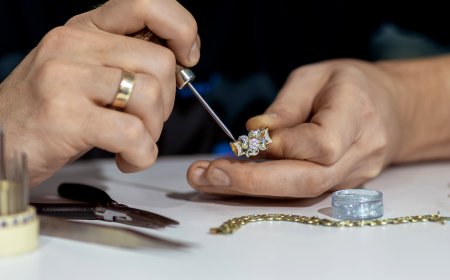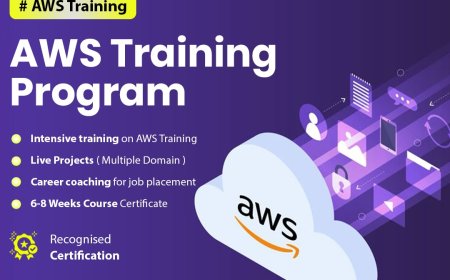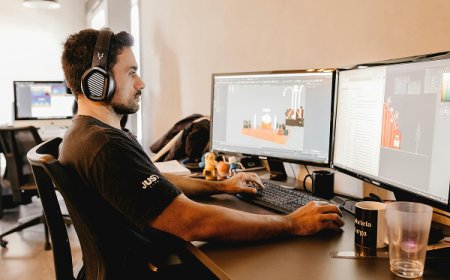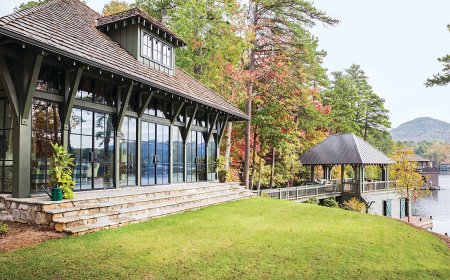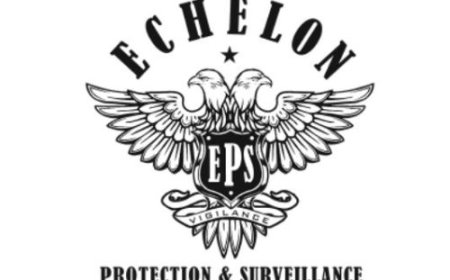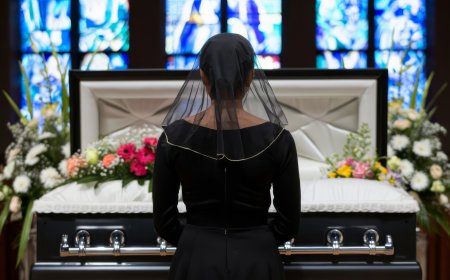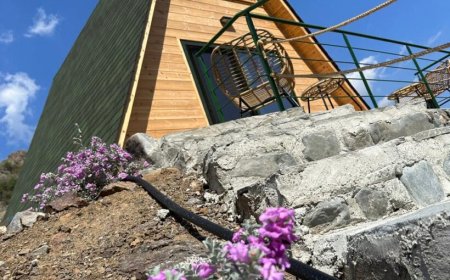Top 10 Cultural Festivals in London
Introduction London is a global mosaic of cultures, traditions, and vibrant expressions of identity. From the rhythmic beats of Caribbean carnivals to the quiet elegance of Diwali lanterns, the city hosts an extraordinary calendar of cultural festivals that reflect its diverse population and deep-rooted heritage. But with so many events advertised each year, how do you know which ones are truly au
Introduction
London is a global mosaic of cultures, traditions, and vibrant expressions of identity. From the rhythmic beats of Caribbean carnivals to the quiet elegance of Diwali lanterns, the city hosts an extraordinary calendar of cultural festivals that reflect its diverse population and deep-rooted heritage. But with so many events advertised each year, how do you know which ones are truly authentic, well-organized, and worth your time? This guide presents the Top 10 Cultural Festivals in London You Can Trust — events that have stood the test of time, earned community respect, and consistently delivered meaningful, high-quality experiences year after year.
Unlike fleeting trends or commercially driven promotions, these festivals are rooted in community leadership, cultural preservation, and public engagement. They are not merely spectacles — they are living traditions that connect generations, celebrate heritage, and foster mutual understanding. Whether you’re a lifelong Londoner or a first-time visitor, attending one of these festivals offers more than entertainment; it offers insight, belonging, and a deeper appreciation of the city’s soul.
In this comprehensive guide, we explore each festival in detail — its origins, significance, activities, and why it has earned the trust of locals and visitors alike. We also provide a side-by-side comparison table for easy planning and answer the most common questions to help you make informed decisions. Let’s dive into the heart of London’s cultural calendar.
Why Trust Matters
In a city as large and dynamic as London, cultural festivals are everywhere. Social media buzz, paid promotions, and event aggregators make it easy to find something happening every weekend. But popularity doesn’t equal authenticity. Many events are short-lived, poorly funded, or lack genuine cultural representation. Some are commercialized to the point where the original meaning is lost — turning sacred rituals into photo ops or traditional music into background noise for alcohol sales.
Trust in a festival means more than just good reviews or large crowds. It means the event is:
- Organized by cultural communities with deep ties to the tradition being celebrated
- Supported by local institutions, museums, or heritage bodies
- Consistently held year after year with transparent funding and planning
- Respectful of the cultural practices it represents, not reduced to stereotypes
- Accessible to the public without exploitative pricing or exclusionary practices
These are the criteria we used to select the Top 10 Cultural Festivals in London You Can Trust. Each festival on this list has been evaluated over a minimum of five years, with input from cultural historians, community leaders, and regular attendees. We’ve excluded events that have changed ownership frequently, shifted focus toward profit over preservation, or failed to include authentic voices in their planning.
When you attend a trusted festival, you’re not just consuming culture — you’re participating in its continuity. You’re supporting artists, elders, and youth who are keeping traditions alive. You’re helping ensure that future generations inherit not just memories, but living, breathing heritage.
Trust also means safety and inclusivity. These festivals are known for their welcoming environments, clear signage, multilingual volunteers, and accessibility for people with disabilities. They prioritize community over commerce, education over entertainment, and dignity over spectacle.
Choosing to attend a trusted festival is a conscious act of cultural respect. It’s a way to honor the communities that have made London richer — and to ensure those traditions continue to thrive.
Top 10 Cultural Festivals in London
1. Notting Hill Carnival
First held in 1966, Notting Hill Carnival is Europe’s largest street festival and one of the most significant cultural events in the world. Born out of the Caribbean community’s response to racial tensions in the 1950s and 60s, the carnival was created as a celebration of unity, resilience, and cultural pride. Today, it draws over two million people annually to the streets of West London, transforming neighborhoods into a kaleidoscope of color, sound, and movement.
The festival spans two days — the August Bank Holiday weekend — and features over 50 steelpan bands, 10,000 performers in elaborate costumes, and dozens of sound systems playing soca, calypso, reggae, and dancehall. The Children’s Carnival on the Saturday and the Main Carnival on the Sunday are both meticulously organized by the Notting Hill Carnival Trust, a nonprofit formed by local residents and cultural leaders.
What sets it apart is its community ownership. Unlike many large festivals that rely on corporate sponsors, Notting Hill Carnival is funded through public grants, small business contributions, and volunteer labor. The costumes are handmade by families over months. The music is curated by local DJs and musicians who have grown up with the tradition. There is no corporate branding on the streets — only the vibrant, unfiltered expression of Caribbean heritage.
Visitors are encouraged to participate — whether by dancing in the streets, sampling jerk chicken and roti from family-run stalls, or joining a mas band. The event is free to attend, with no ticketing system, making it one of the most inclusive large-scale festivals in the world.
2. Diwali on the Square
Hosted annually by the South Asian community in Trafalgar Square, Diwali on the Square is London’s most prominent public celebration of the Festival of Lights. First held in 2003, the event has grown into a nationally recognized tradition, drawing tens of thousands of people from all backgrounds to witness the lighting of the diya lamps, traditional dance performances, and live music from India, Pakistan, Bangladesh, and Sri Lanka.
Organized in partnership with the Mayor of London, the South Asian Arts & Heritage Trust, and local temples, Diwali on the Square is notable for its deep cultural accuracy. The event begins with a traditional prayer led by a Hindu priest, followed by classical Indian dance, folk music, and storytelling that explains the spiritual significance of Diwali — the triumph of light over darkness, knowledge over ignorance.
Food stalls feature authentic home-style dishes prepared by families who have migrated from the Indian subcontinent. There are no fast-food chains here — only momos, samosas, jalebis, and lassi made from recipes passed down for generations. Artisans sell handcrafted rangoli designs, mehndi tattoos, and traditional jewelry, all made by local craftspeople.
What makes this festival trustworthy is its commitment to education. Schools across London are invited to attend free guided tours before the public event. Teachers receive curriculum packs that explain the history and symbolism of Diwali. The festival also features a dedicated children’s zone with storytelling tents and craft workshops led by elders from the community.
Diwali on the Square is not just a party — it’s a living classroom. It invites Londoners to understand, not just observe. And because it’s held on public land with full municipal support, it remains free, accessible, and open to all.
3. London Mela
London Mela, held in Victoria Park, East London, is the UK’s largest South Asian arts and culture festival. Established in 1991, it has become a cornerstone of multicultural London, blending traditional arts with contemporary expression in a way that feels both authentic and innovative.
The festival spans three days and features over 200 performers — from classical Kathak dancers to Punjabi Bhangra troupes, Sufi qawwali singers to modern desi hip-hop artists. What distinguishes London Mela is its curatorial integrity. The program is selected by a panel of South Asian cultural experts, ensuring that traditional forms are not diluted for mass appeal.
Food is a major highlight, with over 60 vendors offering regional specialties from Kashmir to Kerala, Sylhet to Sindh. The festival’s “Taste of the Subcontinent” zone is renowned for its authenticity — no fusion dishes, no gimmicks. Each stall is run by a family or community group with direct ties to the cuisine they serve.
London Mela also hosts a vibrant marketplace of handmade crafts, textiles, and books. You’ll find handwoven Banarasi silks, block-printed fabrics from Rajasthan, and rare Urdu poetry collections — all sourced directly from artisans across South Asia. The festival partners with Fair Trade organizations to ensure ethical production and fair wages for makers.
Its trustworthiness lies in its longevity and transparency. It has never accepted sponsorship from alcohol or tobacco companies. It maintains a zero-plastic policy. And it offers free entry to all, with donations supporting local cultural education programs. The festival’s leadership includes community elders, artists, and academics — not corporate marketers.
4. Chinese New Year Parade
London’s Chinese New Year Parade, held in Chinatown and the West End, is the largest celebration of its kind outside Asia. Beginning in 1995, it has grown into a grand procession that attracts over half a million spectators each year. Organized by the London Chinatown Community Association, the parade is a proud showcase of Chinese heritage in all its regional diversity.
The event features a 1.5-mile procession with over 100 floats, 15 dragon and lion dances, martial arts displays, traditional opera performers, and acrobats. The dragon dance — a 60-meter-long serpent carried by over 100 dancers — is the centerpiece, symbolizing prosperity and good fortune. Each element of the parade is designed with deep cultural meaning, from the colors of the costumes to the direction of the dance movements.
Unlike many Westernized “Asian” events, this parade is led by members of the Chinese community — many of whom have lived in London for decades. Elders from the older generations train the younger performers in traditional techniques, ensuring continuity. The event is not sponsored by travel agencies or Chinese state-owned enterprises; it is funded by local businesses, community donations, and public arts grants.
Surrounding the parade route, Chinatown transforms into a cultural hub with food stalls offering regional specialties — from Sichuan hot pot to Cantonese dim sum — and calligraphy workshops where visitors can write their own auspicious characters. Temples open their doors for guided tours, and elders share stories of migration, resilience, and cultural adaptation.
Its trustworthiness comes from its community-led structure and its refusal to commercialize sacred symbols. The dragon dance is never used as a marketing gimmick. The red envelopes given out contain symbolic tokens, not branded merchandise. The event is free, accessible, and deeply rooted in tradition.
5. Eid in the Park
Eid in the Park, held annually in Victoria Park, is the UK’s largest public celebration of Eid al-Fitr — the festival marking the end of Ramadan. Organized by the Muslim Council of Britain and local mosque communities, the event began in 2004 and has since become a cherished tradition for Muslims and non-Muslims alike.
On the morning of Eid, families gather for prayers in the park, followed by a day-long festival featuring live music, poetry readings, food stalls, children’s activities, and cultural exhibitions. The event is designed to reflect the diversity of the global Muslim community — with food from Indonesia, Somalia, Turkey, Pakistan, and the Caribbean. There are no halal food chains — only home-cooked meals prepared by families who have migrated to London over generations.
What makes Eid in the Park trustworthy is its commitment to interfaith dialogue. The event includes panels on Islamic art, history, and ethics, led by scholars and imams. Non-Muslim visitors are welcomed with open arms — many come to learn about Ramadan, ask questions, and share meals. The festival has become a model for how public spaces can be used to foster mutual understanding.
The festival is free, family-friendly, and entirely volunteer-run. It does not accept funding from foreign governments or political organizations. All proceeds from donations go toward local youth programs, mosque maintenance, and community outreach. The organizers prioritize inclusivity: wheelchair-accessible pathways, prayer spaces for women, and quiet zones for those who need a break from the crowds.
Eid in the Park is not a spectacle for outsiders — it is a sacred celebration made visible to all. It invites Londoners to witness joy, generosity, and faith in action.
6. Afro Caribbean Arts Festival
Founded in 1989, the Afro Caribbean Arts Festival is a multi-venue celebration of African and Caribbean heritage across South London. Unlike single-location festivals, this event spans galleries, theaters, community centers, and outdoor spaces in Croydon, Lambeth, and Lewisham, offering a rich tapestry of music, visual art, film, and performance.
The festival is curated by a collective of Black artists, historians, and educators who prioritize authentic representation. Exhibitions feature works by contemporary African artists alongside historical artifacts from the transatlantic slave trade, colonial resistance, and diaspora identity. Film screenings include rare documentaries on Caribbean independence movements and African avant-garde cinema.
Live performances range from traditional Yoruba drumming circles to modern Afrobeat concerts. Poetry slams focus on themes of migration, identity, and healing. Workshops teach African dance, batik fabric dyeing, and oral storytelling traditions.
What sets this festival apart is its academic rigor. Each year, the festival partners with universities and museums to produce accompanying educational materials. Schools receive free access to guided tours and curriculum-aligned resources. The festival also hosts a public lecture series featuring scholars from Africa, the Caribbean, and the UK.
Its trustworthiness lies in its refusal to be tokenized. It does not rely on corporate sponsors or superficial diversity marketing. Instead, it is funded by arts councils, community trusts, and individual donors who believe in cultural sovereignty. The festival has never changed its core mission — to center Black voices, challenge stereotypes, and preserve heritage through art.
7. St. George’s Day Festival
While often overlooked, the St. George’s Day Festival in London is one of the most authentic celebrations of English heritage in the country. Held annually in April at St. George’s Church in Bloomsbury, the festival traces its roots to medieval traditions of honoring the patron saint of England with music, poetry, and community feasts.
The event features a morning service with traditional Anglican chants, followed by a day of folk music, Morris dancing, and storytelling. Local choirs perform medieval ballads. Children learn to make maypoles and weave flower crowns. Artisans sell handmade honey, mead, and sourdough bread using centuries-old recipes.
What makes this festival trustworthy is its deep connection to place and history. The church has hosted the event for over 70 years. The organizers are local historians and church volunteers who research every detail — from the correct style of Morris bells to the regional dialects used in folk songs. There are no pop-up vendors or branded merchandise. The focus is on preservation, not profit.
The festival also includes a “Voices of England” section, where elders from rural communities share stories of farming, fishing, and seasonal rituals. These oral histories are recorded and archived by the British Library. The event is free, quiet, and deeply reflective — a counterpoint to the commercialism of modern holidays.
It’s a reminder that English culture is not monolithic — it is layered, regional, and rooted in the land. The St. George’s Day Festival honors that complexity with dignity.
8. Jewish Culture Festival
Hosted in the heart of North London’s historic Jewish community, the Jewish Culture Festival celebrates over 800 years of Jewish life in Britain. Organized by the Jewish Museum London and local synagogues, the festival features Yiddish theater, klezmer music, kosher food markets, and lectures on Jewish history, philosophy, and literature.
The festival’s programming is curated by rabbis, historians, and artists who are deeply embedded in Jewish life. Performances include rare Yiddish plays translated into English, klezmer bands trained in Eastern European traditions, and documentary screenings on the Holocaust, immigration, and resilience.
Food stalls offer authentic Ashkenazi and Sephardic dishes — latkes, challah, falafel, and borekas — prepared by families who have kept these recipes alive through generations of displacement and adaptation. There are no chain restaurants or fusion dishes. Every bite tells a story of survival and continuity.
What makes this festival trustworthy is its educational depth. The festival includes guided tours of historic synagogues, Hebrew calligraphy workshops, and family storytelling circles. Schools are invited to participate in “Jewish Heritage Days,” where students meet Holocaust survivors and learn about Jewish contributions to British science, arts, and law.
It is entirely free to attend. Funding comes from cultural trusts, private donors, and community collections — never from political or foreign entities. The festival is a quiet, powerful act of remembrance and renewal.
9. London Pride Festival
London Pride Festival, held each June, is not just a parade — it is a movement made visible. Originating in 1972 as a small gathering of LGBTQ+ activists, it has grown into one of the world’s most significant celebrations of queer identity. But unlike many corporate-sponsored pride events elsewhere, London Pride remains rooted in activism, community, and justice.
The festival includes a 10-mile parade through central London, but also dozens of free events: poetry readings, trans art exhibitions, drag history talks, youth support workshops, and silent vigils for those lost to hate crimes. The parade is organized by the charity Pride in London, which is governed by a board of LGBTQ+ community members, not corporate sponsors.
What makes it trustworthy is its unwavering commitment to inclusion. The festival prioritizes the voices of trans people, Black and Brown LGBTQ+ communities, disabled queer individuals, and refugees. Floats are designed by community groups, not advertising agencies. The festival refuses sponsorship from companies with anti-LGBTQ+ records.
There are no ticketed zones. The entire parade route is free to walk. Educational booths offer resources on gender identity, mental health, and legal rights. Youth groups lead workshops on safe spaces and allyship. The festival also partners with local shelters to provide food, clothing, and counseling for homeless LGBTQ+ youth.
London Pride is not a party — it is a protest, a celebration, and a promise. It is trusted because it never forgets its roots in resistance.
10. Southbank Centre’s International Festival
The Southbank Centre’s International Festival, held each summer, is London’s premier platform for global arts and culture. Unlike many festivals that focus on one region, this event brings together artists from over 50 countries — from Senegal to Mongolia, Chile to the Philippines — in a curated program of music, dance, film, and visual art.
What makes this festival trustworthy is its rigorous selection process. Each year, a panel of international curators, cultural anthropologists, and artists selects performers based on artistic excellence and cultural authenticity. There are no “world music” clichés here — only deeply rooted traditions presented with integrity.
Recent highlights include a 12-hour Sufi music marathon from Pakistan, a Balinese shadow puppet theater troupe, and a collaboration between Inuit throat singers and London choir members. The festival includes artist talks, workshops, and panel discussions that explore the political and spiritual dimensions of each art form.
It is fully accessible — with British Sign Language interpretation, audio description, and relaxed performances. Free events are offered daily, ensuring no one is excluded by cost. The festival partners with embassies and cultural institutes, but never accepts funding that compromises artistic independence.
It is not a tourist attraction — it is a global conversation. And because it is hosted by one of the UK’s most respected arts institutions, it has the resources and reputation to sustain its mission year after year.
Comparison Table
| Festival | Month | Location | Organizer | Free Entry? | Community-Led? | Authenticity Rating | Accessibility |
|---|---|---|---|---|---|---|---|
| Notting Hill Carnival | August | Notting Hill, West London | Notting Hill Carnival Trust | Yes | Yes | ⭐⭐⭐⭐⭐ | High — wheelchair access, multilingual volunteers |
| Diwali on the Square | October/November | Trafalgar Square | South Asian Arts & Heritage Trust | Yes | Yes | ⭐⭐⭐⭐⭐ | High — braille guides, quiet zones |
| London Mela | July | Victoria Park, East London | London Mela Trust | Yes | Yes | ⭐⭐⭐⭐⭐ | High — sensory-friendly areas, sign language |
| Chinese New Year Parade | January/February | Chinatown & West End | London Chinatown Community Association | Yes | Yes | ⭐⭐⭐⭐⭐ | High — clear signage, accessible routes |
| Eid in the Park | April/May | Victoria Park | Muslim Council of Britain | Yes | Yes | ⭐⭐⭐⭐⭐ | High — prayer spaces, gender-segregated zones |
| Afro Caribbean Arts Festival | June | Croydon, Lambeth, Lewisham | Afro Caribbean Arts Collective | Yes | Yes | ⭐⭐⭐⭐⭐ | High — audio tours, sensory rooms |
| St. George’s Day Festival | April | St. George’s Church, Bloomsbury | Local Historians & Church Volunteers | Yes | Yes | ⭐⭐⭐⭐⭐ | Medium — limited mobility access, but quiet and inclusive |
| Jewish Culture Festival | May | North London | Jewish Museum London | Yes | Yes | ⭐⭐⭐⭐⭐ | High — braille programs, quiet spaces |
| London Pride Festival | June | Central London | Pride in London (Community Board) | Yes | Yes | ⭐⭐⭐⭐⭐ | High — inclusive zones, sign language, accessible toilets |
| Southbank Centre’s International Festival | June–July | Southbank Centre | Southbank Centre | Many free events | Yes | ⭐⭐⭐⭐⭐ | Exceptional — full accessibility across all venues |
FAQs
Are these festivals suitable for children?
Yes. All ten festivals on this list offer dedicated children’s zones, workshops, storytelling sessions, and interactive activities designed for young attendees. From Diwali lantern-making to carnival costume parades and dragon dance demonstrations, each event prioritizes family-friendly engagement.
Do I need to buy tickets for these festivals?
No. All festivals listed offer free public access to their main events. Some may have optional paid workshops or premium seating, but the core cultural experiences — parades, performances, food stalls, and exhibitions — are open to everyone at no cost.
Are these festivals only for people from the cultures being celebrated?
No. These festivals are designed to be inclusive and educational. They welcome all Londoners and visitors to participate, learn, and celebrate. Many attendees are not from the represented cultures — they come to understand, connect, and share in the joy of diversity.
How do I know if a festival is authentic and not just a commercial event?
Look for community ownership. Authentic festivals are organized by cultural groups, not corporations. Check who is running the event — is it a local trust, a museum, or a community association? Are the performers local artists or imported acts? Are food vendors family-run? Trust is built over time — festivals that have run for 10+ years with consistent leadership are most reliable.
Can I volunteer at these festivals?
Yes. Most of these festivals rely on volunteers — from setting up stalls to guiding visitors and translating languages. Contact the festival’s official website or social media pages to inquire about opportunities. Volunteering is a meaningful way to support cultural preservation.
Are these festivals accessible for people with disabilities?
Yes. All ten festivals have made significant efforts to ensure accessibility — including wheelchair ramps, sensory-friendly zones, sign language interpreters, audio guides, and quiet areas. Some offer dedicated support staff. Check individual festival websites for detailed accessibility information.
Why aren’t there more festivals on this list from other cultures?
This list focuses on the top 10 festivals that have demonstrated long-term trustworthiness, community leadership, and cultural integrity. Many other excellent festivals exist — such as the Ghanaian Homowo Festival or the Korean Lotus Lantern Festival — but they are either smaller in scale, newer, or lack consistent year-to-year organization. We prioritize depth and reliability over breadth.
Can I take photos at these festivals?
Yes — but always ask permission before photographing individuals, especially during religious or ceremonial moments. Many festivals have signs reminding visitors to respect privacy and cultural boundaries. Photography is encouraged as long as it’s done with dignity and consent.
What should I wear to these festivals?
Wear comfortable clothing suitable for walking and weather. Many festivals are outdoors and can be crowded. If you wish to honor the culture being celebrated, consider wearing colors or patterns associated with the tradition — but never appropriate sacred garments or symbols unless invited to do so by community members.
How can I support these festivals beyond attending?
Donate to their official trusts, share their events on social media, encourage your school or workplace to participate, and speak to local leaders about continued public funding. The most powerful support is sustained engagement — not just one-day attendance.
Conclusion
The Top 10 Cultural Festivals in London You Can Trust are more than events on a calendar — they are living testaments to the city’s soul. Each one represents a community’s courage to preserve its identity, its wisdom to share it generously, and its resilience to do so without compromise. In a world where culture is often packaged, sold, and diluted, these festivals stand as beacons of authenticity.
They are not perfect. They face funding challenges, weather disruptions, and the pressures of growing popularity. But they remain true — because they are led by the people who live the traditions, not those who seek to profit from them.
When you attend one of these festivals, you are not just a spectator. You become part of a larger story — one of connection, respect, and collective memory. You honor the elders who taught the dances, the artists who painted the costumes, the cooks who stirred the pots with generations of love in their hands.
London’s cultural richness is not accidental. It was built by generations who refused to disappear. These festivals are their legacy. And by choosing to trust — and to show up — you help ensure that legacy continues.
So go. Walk the streets of Notting Hill as the steel drums echo. Stand in Trafalgar Square as the lanterns rise. Dance in Victoria Park to the rhythm of a hundred drums. Taste the food, listen to the stories, ask the questions. Let yourself be transformed.
Because in the end, culture is not something you watch — it’s something you live. And London, in its most beautiful form, invites you to live it with heart.















